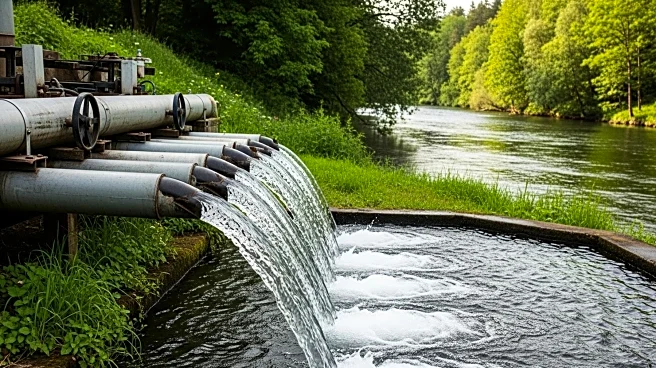What's Happening?
The U.S. Environmental Protection Agency (EPA) has proposed extending the compliance timeline for coal power plants to adhere to new wastewater disposal guidelines. This proposal is part of a broader package of coal-supporting actions introduced by the Trump administration, which includes a $625 million initiative to retrofit and recommission coal plants. The EPA's proposal aims to reduce electricity costs by an estimated $30 million to $200 million annually. However, environmental groups, such as the Sierra Club, argue that delaying these requirements will expose more people to toxic pollution. The EPA's current effluent limitations guidelines (ELGs) for wastewater discharges from steam electric power plants are considered costly by the agency, which cites increasing demand from AI and data centers as a strain on the electric power sector.
Why It's Important?
The proposed delay in compliance for coal plant wastewater guidelines has significant implications for environmental policy and public health. While the EPA argues that the delay will help reduce costs and improve electricity reliability, environmentalists warn that it could lead to increased pollution and health risks. The decision reflects ongoing tensions between economic interests and environmental protection, with potential impacts on public health, particularly in communities near coal plants. The move also highlights the Trump administration's focus on supporting coal as an energy source, despite its environmental and health costs.
What's Next?
The EPA has opened a 30-day public comment period following the publication of the proposal in the Federal Register. Additionally, the agency is seeking input on potential changes to the Regional Haze Rule, which aims to improve visibility in national parks and wilderness areas. The outcome of these regulatory changes could influence future energy policy and environmental standards, with potential reactions from environmental groups, industry stakeholders, and policymakers.










